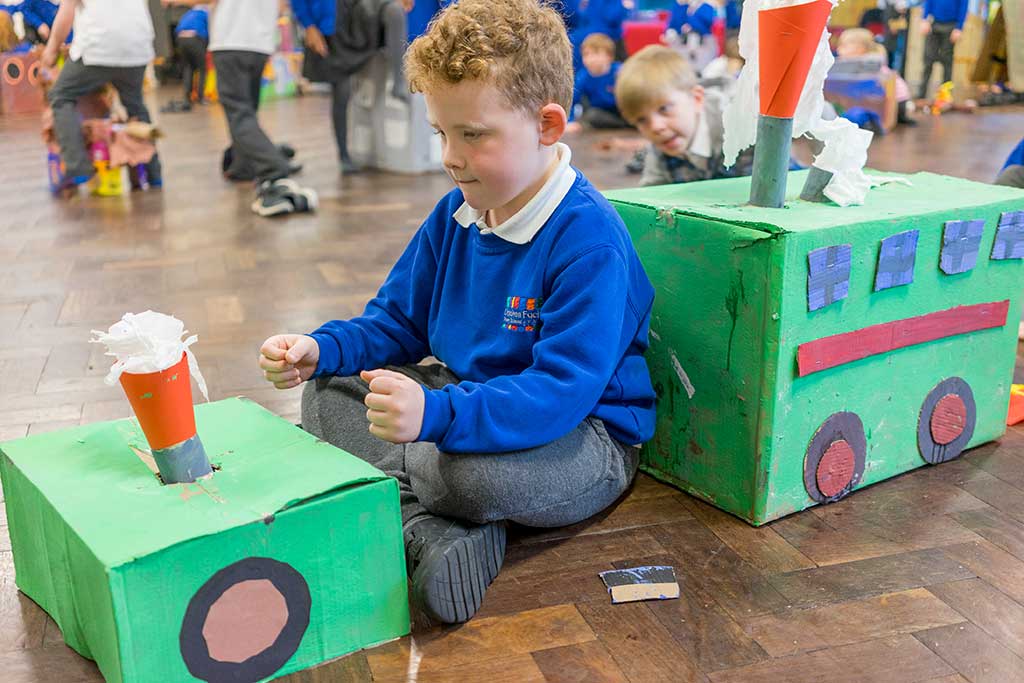Llanishen Fach School Spring News
Earlier this Spring, Llanishen Fach Primary School took part in Free-range Fortnight. Here are some of their highlights
Learning experiences and environments can take many forms.
Here at Llanishen Fach, we are only too aware of the benefits that can come from shaking up the ‘norm’ and venturing into uncharted territories. With Donaldson’s review of education in Wales and the resulting changes to the curriculum, we have been encouraged, if encouragement was ever needed, to provide rich contexts that support our pupils to be: ambitious, capable learners who are ready to learn throughout their lives; enterprising, creative contributors who are ready to play a full part in life and work; ethical, informed citizens who are ready to be citizens of Wales and the world; and healthy and confident individuals who are ready to lead fulfilling lives as valued members of society.
At the start of this term, we took two weeks out from our timetabled curriculum to immerse our pupils, from Reception to Year 6, in what we called ‘Free-range Fortnight’.

Taking the ‘United Nations Convention on the Rights of the Child’ (UNCRC) as our focus for the fortnight, our pupils embarked on a journey during which their horizons were widened. They learnt about this legally-binding international agreement setting out the civil, political, economic, social and cultural rights of every child, regardless of their race, religion or abilities.
In selecting the direction and themes for the fortnight, our pupils helped devise a remarkable curriculum, one in which they were able to take the Welsh dimension and explore cross-curricular elements to their learning and extend their skills and broaden their international perspectives. In reviewing the fortnight, our staff widely reported on the depth and quality of engagement their pupils had experienced and, as importantly, the attainment our pupils achieved in their literacy, numeracy and digital competency skills.
During the course of the two weeks, we saw the expressive arts being used to explore new and challenging areas of experience; with pupils gaining a greater understanding of their own cultural identity and those of other societies as they addressed complex and difficult issues. Opportunities arose to explore the choices we make and how these affect our own and others’ health and wellbeing, as well as the impact we can have on our environments, cultures and communities, including the natural world. In gaining an insight into the ‘Rights of the Child’, our pupils have built upon their existing knowledge and understanding of concepts, such as: historical, geographical, political, economic, religious and societal.

Most notably, through languages, literacy and digital communication, the voices of our pupils were heard loud and clear as they empathised with the children of the world and came to develop their sense of self, and their place and voice in society. In addition, the application of mathematical and numerical skills across the activities and experiences explored provided opportunities to consolidate learning and develop resilience when applying mathematical skills to creative challenges, working individually and in groups. Knowledge of science and technology enabled our pupils to draw on and evaluate evidence to reach conclusions, arguing rationally, morally, consistently and objectively based on their evaluation of evidence.
Article: 31 Every child has the right to relax and play
“We are really lucky because we get the chance to relax but some children don’t. They sometimes have to work instead of going to school because they don’t have enough money and aren’t treated well by the people around them.” Year 3
Article: 31 Every child has the right to relax and play
“Some children have to work all day and their hands hurt. We don’t have any fighting but in other countries there are wars and the children leave their family and are sad.” Year 2
Article: 24 Every child has the right to the best possible health
“When plastic gets into the environment, it disintegrates into micro plastics that will impact on wildlife and us as it gets into the food chain. People don’t care enough about our environment but the more children learn and change their behaviour, the more likely that things will get better for us and future generations.”
Year 6
All photographic permissions were obtained for this feature

